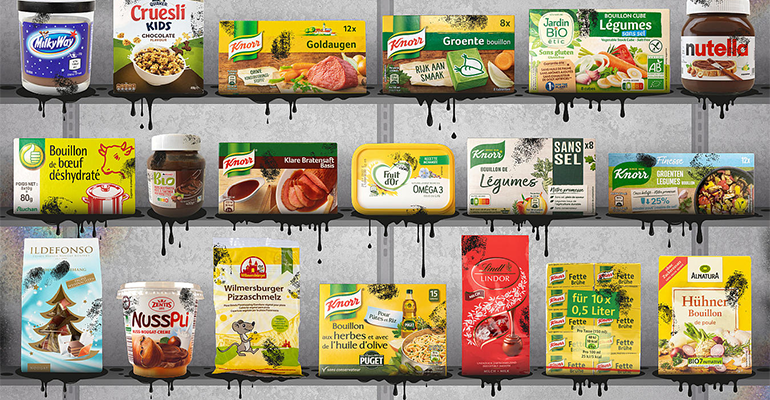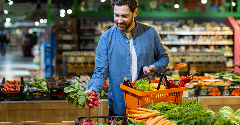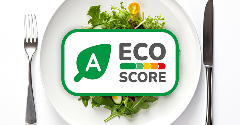News
New EU mineral oil limits an ‘important step for food safety’
23 Jun 2022
The EU’s decision to restrict aromatic mineral oils (MOAH) in food products has been hailed as an important step in food safety and consumer protection but consumer organisation, Foodwatch, is calling for binding regulation to go one step further.
The European Union (EU) has confirmed it will restrict mineral oils in all food products. The decision was made by the Standing Committee on Plants, Animals, Food and Feed (PAFF Committee), which agreed to set limits for aromatic mineral oils (MOAH) in foodstuffs. The PAFF Committee comprises representatives from all EU countries and the European Commission.

Concerns have been raised about the presence of the complex mixtures in food due to MOAH’s potentially carcinogenic and genotoxic nature.
While the newly-agreed constraints are imposed with immediate effect, they are not yet legally binding. As a result, individual member states can choose whether to enforce the new MOAH requirements or not.
Non-profit organisation Foodwatch says that while the recent decision is a “crucial step for food safety” and consumer protection, it does not go far enough, arguing that a binding regulation is vital to prevent any detectable MOAH from making its way into EU food products.
“The problem with mineral oil contamination in food has been known for many years—but food producers have done too little about it, and those responsible in politics have stood by and watched,” says Andreas Winkler, director of media and public relations at Foodwatch.
Justin Boucher, operations director at Food Packaging Forum Foundation, adds: “From a consumer health perspective, setting limits on known hazardous chemicals, of course, aims to reduce consumer exposure and therefore better protect public health from these chemicals.”
New MOAH limits are too low, says Foodwatch
The EU committee has set the limits for the allowed MOAH content in food products. In dry foods with a low fat/oil content equal to or less than 4%, 0.5 mg/kg of MOAH is permitted. For foods with a higher fat/oil content of more than 4%, 1 mg/kg of MOAH is authorised, while 2 mg/kg of MOAH is permitted for fats and oils.
“However, the limits proposed by the EU are too low,” says Winkler. “We demand a strict zero tolerance for MOAH, which are potentially carcinogenic and genotoxic: there should be no detectable MOAH in any foodstuff in the European Union,” adds Winkler.
After exploring the newly imposed limits, Foodwatch states it would be technically possible to identify 1 mg/kg of MOAH in vegetable oils. As a result, it states that the limit of 2 mg in vegetable oils is too high.
Foodwatch says the European Food Safety Authority (EFSA) risk assessment into MOAH needs to go “a step further”.
EFSA plans to release a revised risk assessment for mineral oils at the end of 2022.
German survey: Almost all olive oil products contaminated with mineral oil
“With carcinogenic contaminants, even a small amount is too much,” says Winkler. “Technology exists to detect low levels of MOAH – if any detection at all, the foodstuff must be taken off the shelves.”
German food tester, Ökotest, reviewed 19 olive oils and found that all but one were contaminated with mineral oil components. MOAH was found in approximately a third of the olive oil products tested.
Packaging is also under the spotlight, accompanying harvesting and processing machines, as this also be a reason for mineral oil contamination. Mineral oils can be found in printing inks that then potentially migrate to food contained within the packaging, the organisation relays.
Next steps
Beyond the PAFF committee’s decision to restrict limits of MOAH, attention now turns to whether any further calls from consumer organisations like Foodwatch will prompt MOAH level restrictions in food to become legally binding.
“Food companies must do everything in their power to keep their products clean and safe,” Winkler relays.
Related news

UK Government overhauls childhood obesity strategy
21 Nov 2025
The UK Government has announced a new package of measures designed to reverse the nation’s childhood obesity epidemic following the release of statistics revealing the scale of the crisis.
Read more
How younger consumers are redefining ingredient choices and rejecting brand loyalty
18 Nov 2025
Gen Z and millennial consumers’ preferences for transparency, functionality, and purpose are “redefining the very nature of consumption itself”, says SPINS.
Read more
New UPF standard hoped to offer consumers ‘coherence and clarity’
10 Nov 2025
Ingredients companies are being urged to enter “a new era of partnership and innovation” following the launch of the industry’s first non-UPF verification scheme.
Read more
Ingredient quantities mislabelled on popular protein bars, independent tests show
5 Nov 2025
Some popular protein bars contain more fat, carbs, and/or sugars than claimed on their labels, independent nutrition testing reveals.
Read more
Does promoting protein content push up plant-based sales?
27 Oct 2025
Promoting the protein content of meat-free products is a more effective sales strategy than adding carbon labels, a study of UK bakery chain Greggs suggests.
Read more
Supplement shoppers seek storytelling and science-backed suppliers
17 Oct 2025
Supplement consumers want specific health benefits that focus on prevention and personalisation, according to data from HealthFocus International.
Read more
Food fraud risks rise as brands fight economic and environmental headwinds
10 Oct 2025
Climate change, geopolitics, regulations, and demand for sustainable products are pushing up food fraud and adulteration risks, warns a world-leading food fraud expert.
Read more
The growing appeal of nutrient-dense food claims
2 Oct 2025
Nutrient-dense claims are rising as consumers reject the “empty calories” of UPFs in favour of products that provide meaningful nutrition with every calorie, Mintel data shows.
Read more
What does MAHA mean for the US nutraceutical industry?
30 Sep 2025
Industry associations have expressed mixed reactions to new policy directions on health and nutrition under the Make America Health Again (MAHA) banner.
Read more
Eco-Score labels improve consumer identification of sustainable foods
22 Sep 2025
The presence of a front-of-pack Eco-Score label improves consumers' accuracy in identifying sustainable food products from 52% to 72%, a study suggests.
Read more